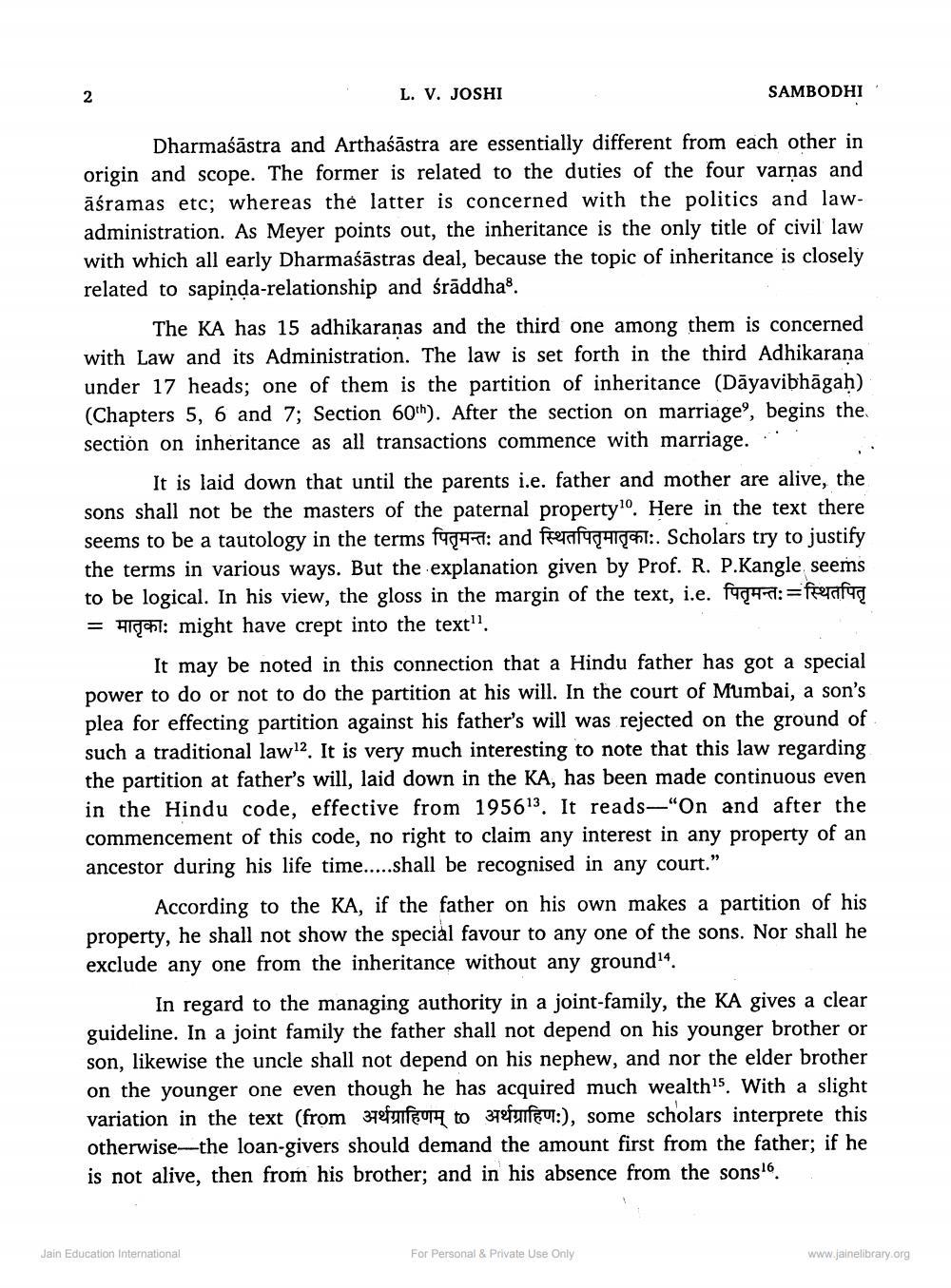Book Title: Sambodhi 2005 Vol 28 Author(s): Jitendra B Shah, K M Patel Publisher: L D Indology Ahmedabad View full book textPage 8
________________ L. V. JOSHI SAMBODHI Dharmaśāstra and Arthaśāstra are essentially different from each other in origin and scope. The former is related to the duties of the four varnas and āśramas etc; whereas the latter is concerned with the politics and lawadministration. As Meyer points out, the inheritance is the only title of civil law with which all early Dharmaśāstras deal, because the topic of inheritance is closely related to sapinda-relationship and śrāddha. The KA has 15 adhikaranas and the third one among them is concerned with Law and its Administration. The law is set forth in the third Adhikarana under 17 heads; one of them is the partition of inheritance (Dāyavibhāgah) (Chapters 5, 6 and 7; Section 60th). After the section on marriage, begins the section on inheritance as all transactions commence with marriage. It is laid down that until the parents i.e. father and mother are alive, the sons shall not be the masters of the paternal property. Here in the text there seems to be a tautology in the terms पितृमन्तः and स्थितपितृमातृकाः. Scholars try to justify the terms in various ways. But the explanation given by Prof. R. P.Kangle seems to be logical. In his view, the gloss in the margin of the text, i.e. fuqu:=feraft = Hiçoht: might have crept into the text". It may be noted in this connection that a Hindu father has got a special power to do or not to do the partition at his will. In the court of Mumbai, a son's plea for effecting partition against his father's will was rejected on the ground of such a traditional lawl2. It is very much interesting to note that this law regarding the partition at father's will, laid down in the KA, has been made continuous even in the Hindu code, effective from 195613. It reads-"On and after the commencement of this code, no right to claim any interest in any property of an ancestor during his life time.....shall be recognised in any court." According to the KA, if the father on his own makes a partition of his property, he shall not show the special favour to any one of the sons. Nor shall he exclude any one from the inheritance without any ground14. In regard to the managing authority in a joint-family, the KA gives a clear guideline. In a joint family the father shall not depend on his younger brother or son, likewise the uncle shall not depend on his nephew, and nor the elder brother on the younger one even though he has acquired much wealth. With a slight variation in the text (from 37effer to 37efufu:), some scholars interprete this otherwise--the loan-givers should demand the amount first from the father; if he is not alive, then from his brother; and in his absence from the sons. Jain Education International For Personal & Private Use Only www.jainelibrary.orgPage Navigation
1 ... 6 7 8 9 10 11 12 13 14 15 16 17 18 19 20 21 22 23 24 25 26 27 28 29 30 31 32 33 34 35 36 37 38 39 40 41 42 43 44 45 46 47 48 49 50 51 52 53 54 55 56 57 58 59 60 61 62 63 64 65 66 67 68 69 70 71 72 73 74 75 76 77 78 79 80 81 82 ... 188
